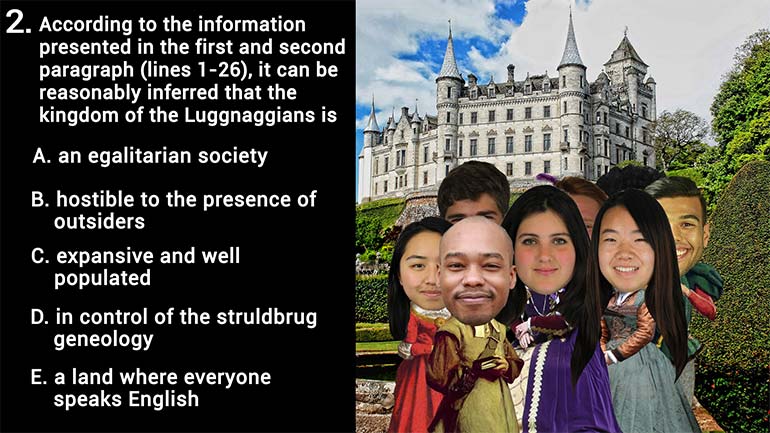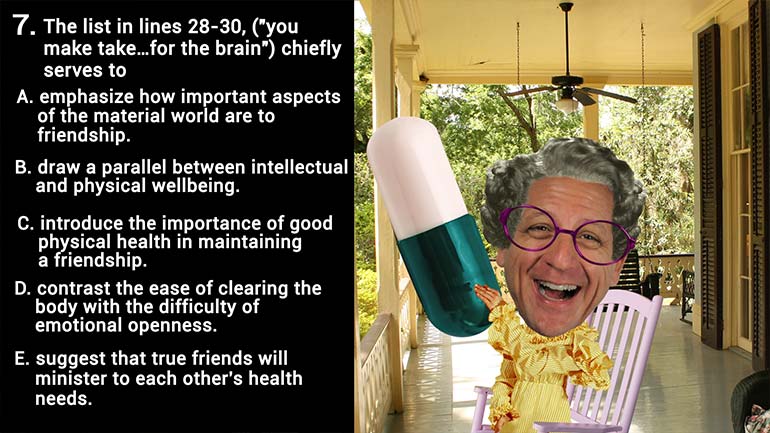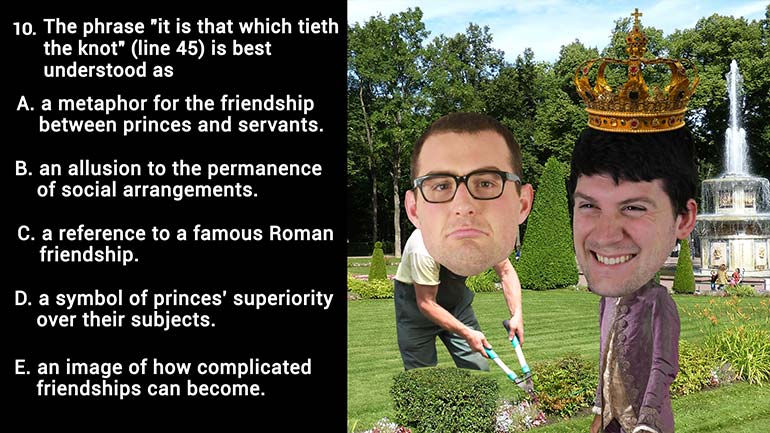ShmoopTube
Where Monty Python meets your 10th grade teacher.
Search Thousands of Shmoop Videos
AP English Literature: Dissecting Development in Poetry 4 Views
Share It!
Description:
Which of the following best describes the development of the poem?
Transcript
- 00:00
Sorry All right AP England people Just a couple more
- 00:06
on this poem right here Which of the following best
- 00:15
describes the development of the poem development Well first love
- 00:23
is dead Summer then speaker Seems Teo enter into a
- 00:27
kind of meditative state As she thinks about those days
Full Transcript
- 00:30
long ago she's gone from thinking a lot about her
- 00:33
actual loss to thinking Maura about memories and the implications
- 00:37
of love's death Let's ask her out Saturday night Yeah
- 00:41
so the answer is B mournful to meditative and loser
- 00:45
bowl well objective to subject of like a would have
- 00:48
you believe in subjective to object of like eat Aren't
- 00:51
Applicant is There's nothing particularly objective about this elegy The
- 00:55
speaker is definitely thinking about a specific person in specific
- 00:58
memories but she's discussing her personal feelings on these things
- 01:02
ambiguous to specific like See their may have some truth
- 01:06
since the whole love is dead Thing is a bit
- 01:08
ambiguous but the specific part doesn't really address the meditative
- 01:12
quality we hear later in the poem You got to
- 01:15
put all this in context of the whole thing Finally
- 01:18
we're not being beaten over the head with imaginative metaphors
- 01:21
and flowery language but we're also not talking about something
- 01:24
in a way that's firmly based in reality So yeah
- 01:27
imaginative too realistic No that's not gonna work either mournful 00:01:31.05 --> [endTime] to meditative That's the best one It's B bye
Up Next
According to the information presented in the first and second paragraph (lines 1-26), it can be reasonably inferred that the kingdom of the Luggna...
Related Videos
In line 27, the adjective "inexpressible" is used
The main idea of the second paragraph (lines 24-33) can best be restated that
The list in lines 28-30, ("you make take sarza for the liver…castoreum for the brain") chiefly serves to
The phrase "it is that which tieth the knot" (line 45) is best understood as




